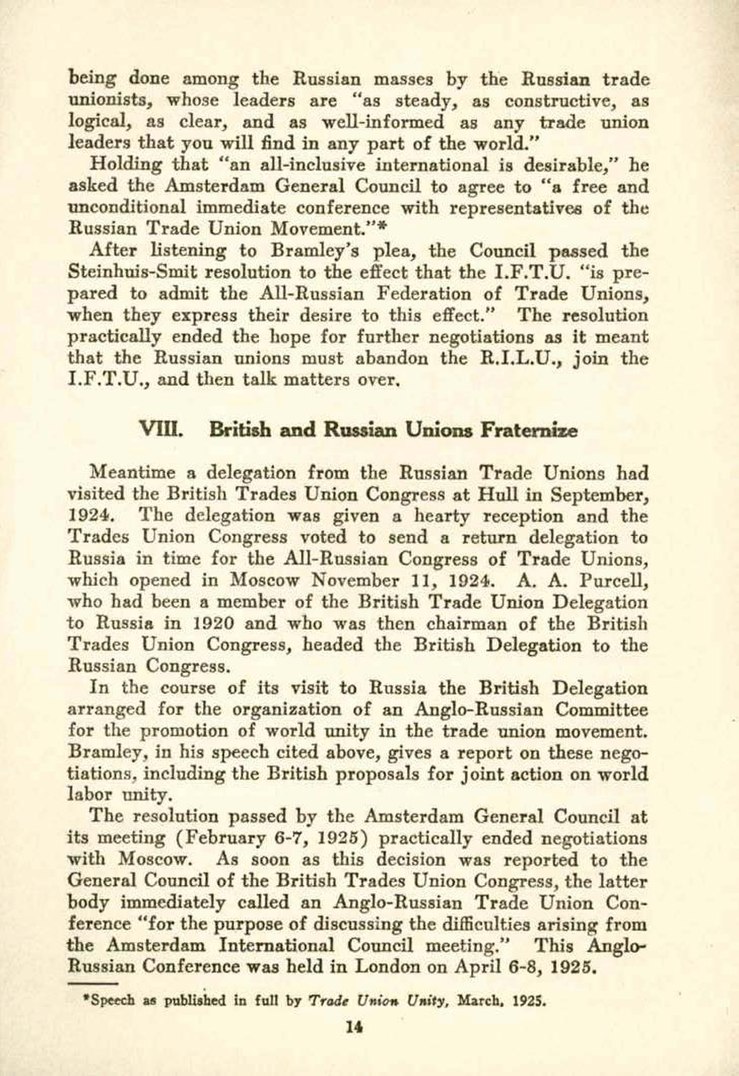being done among the Russian masses by the Russian trade unionists, whose leaders are "as steady, as constructive, as logical, as clear, and as well-informed as any trade union leaders that you will find in any part of the world."
Holding that "an all-inclusive international is desirable," he asked the Amsterdam General Council to agree to "a free and unconditional immediate conference with representatives of the Russian Trade Union Movement."[1]
After listening to Bramley’s plea, the Council passed the Steinhuis-Smit resolution to the effect that the I.F.T.U. "is prepared to admit the All-Russian Federation of Trade Unions, when they express their desire to this effect." The resolution practically ended the hope for further negotiations as it meant that the Russian unions must abandon the R.I.L.U., join the I.F.T.U,, and then talk matters over.
VIII. British and Russian Unions Fraternize
Meantime a delegation from the Russian Trade Unions had visited the British Trades Union Congress at Hull in September, 1924, The delegation was given a hearty reception and the Trades Union Congress voted to send a return delegation to Russia in time for the All-Russian Congress of Trade Unions, which opened in Moscow November 11, 1924. A. A. Purcell, who had been a member of the British Trade Union Delegation to Russia in 1920 and who was then chairman of the British Trades Union Congress, headed the British Delegation to the Russian Congress.
In the course of its visit to Russia the British Delegation arranged for the organization of an Anglo-Russian Committee for the promotion of world unity in the trade union movement. Bramley, in his speech cited above, gives a report on these negotiations, including the British proposals for joint action on world labor unity.
The resolution passed by the Amsterdam General Council at its meeting (February 6–7, 1925) practically ended negotiations with Moscow. As soon as this decision was reported to the General Council of the British Trades Union Congress, the latter body immediately called an Anglo-Russian Trade Union Conference "for the purpose of discussing the difficulties arising from the Amsterdam International Council meeting." This Anglo-Russian Conference was held in London on April 6–8, 1925.
- ↑ Speech as published in full by Trade Union Unity, March, 1925.
14
